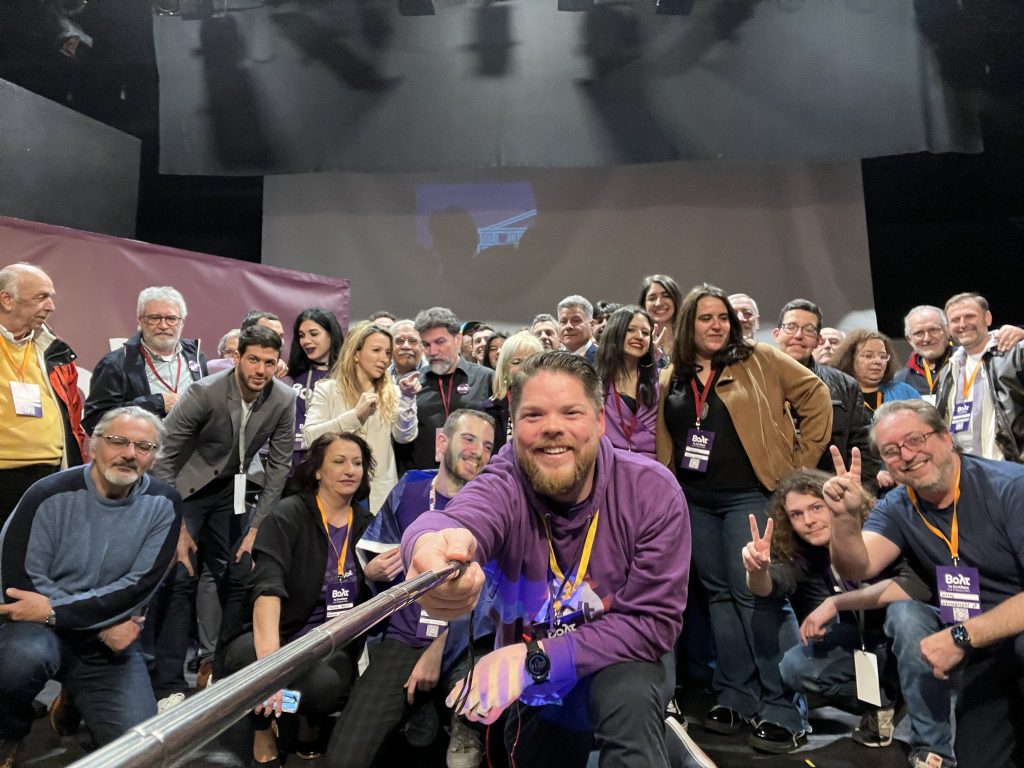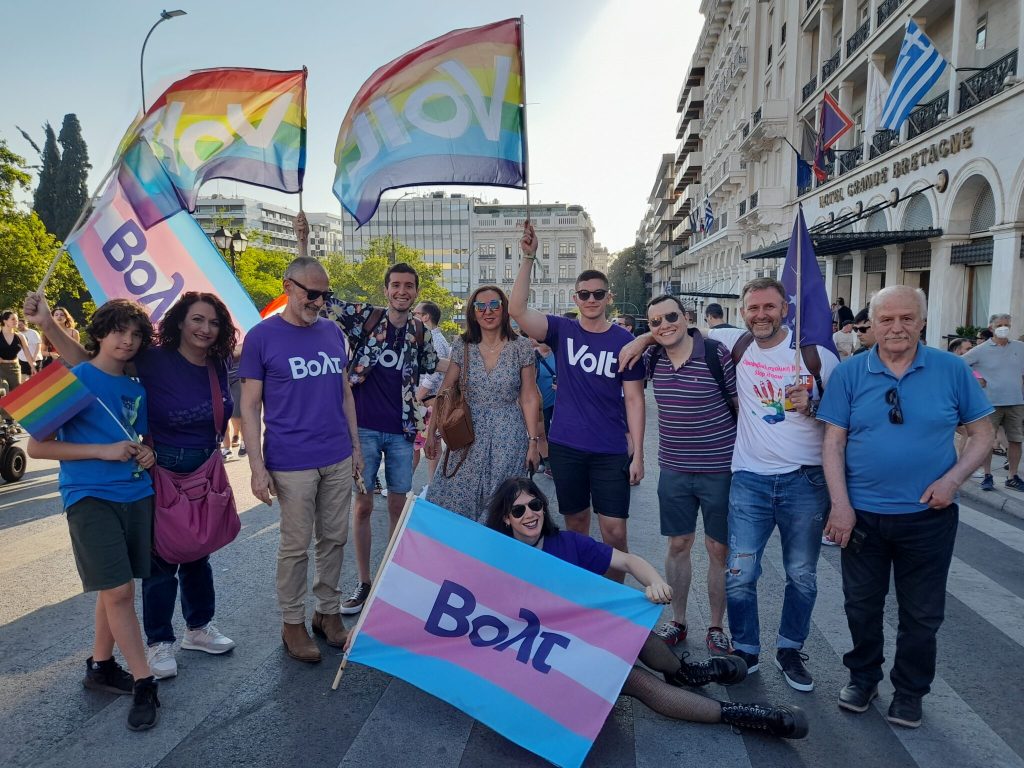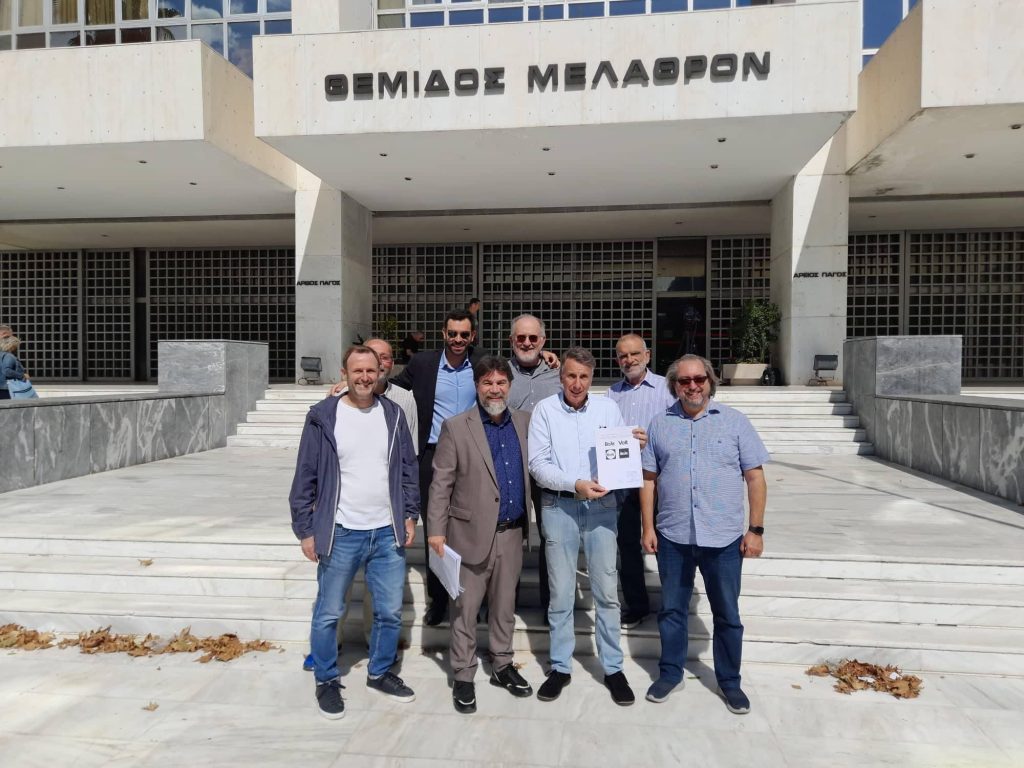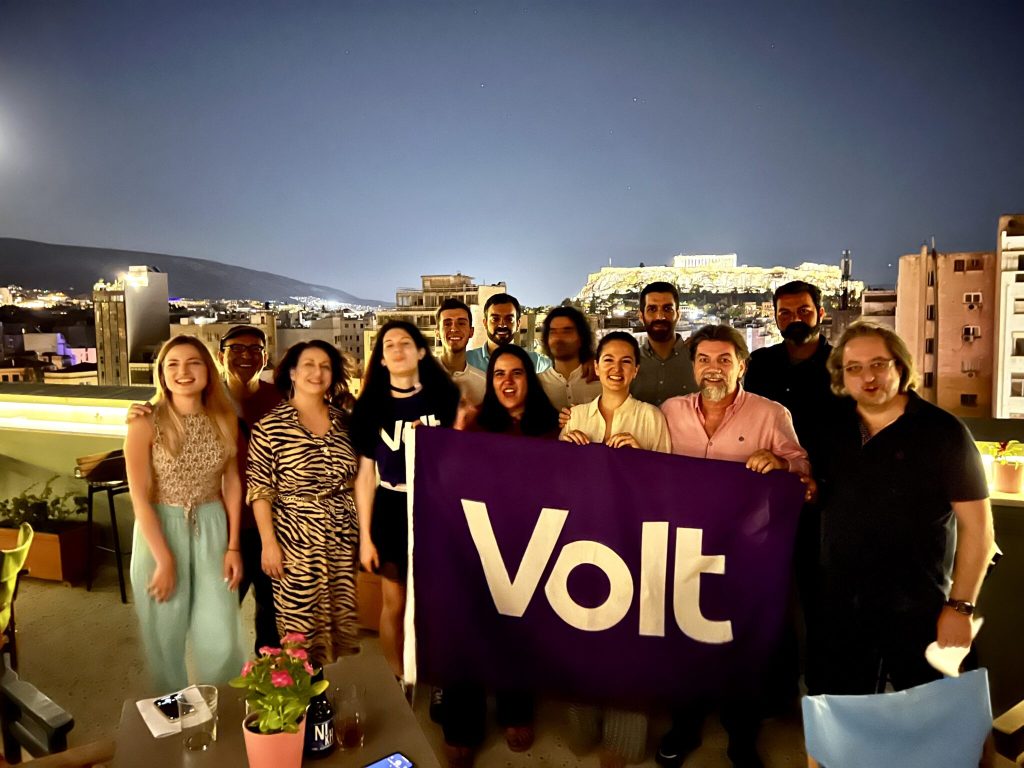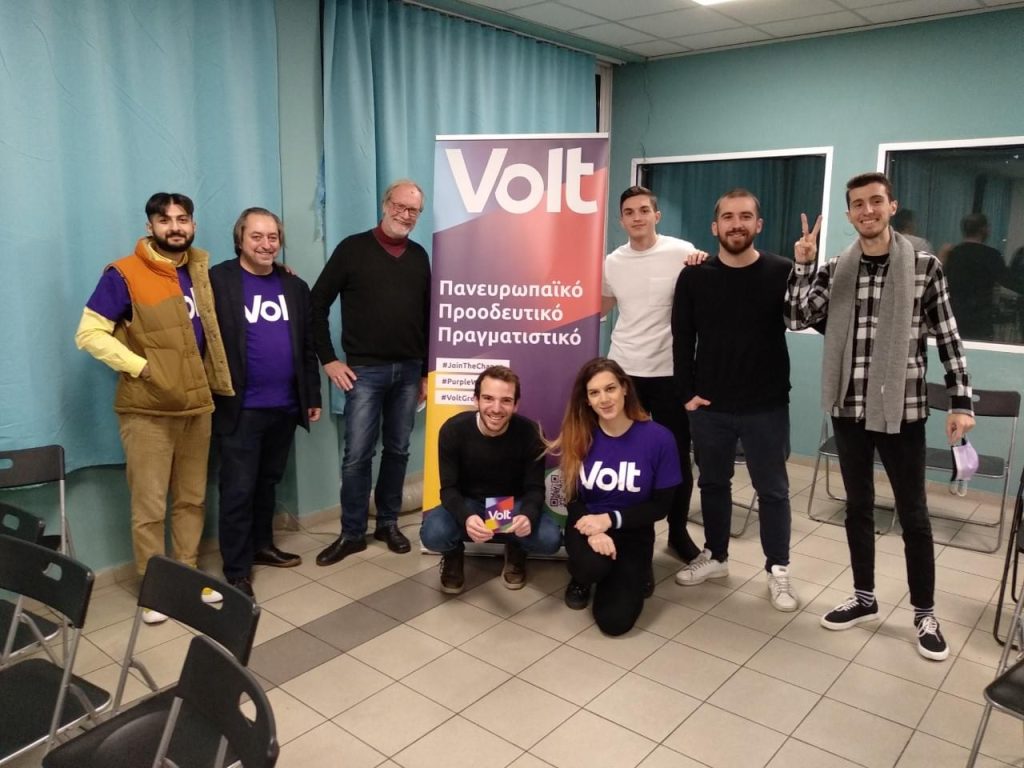Volt is a progressive, pragmatic and pan-European movement that aims at the democratisation of Europe, the change of policy practice and the development of realistic solutions to citizens’ daily problems. These aims are, arguably, far from the current approaches and mindsets of the systemic Greek parties, which proved to be unsuccessful in bringing about the drastic changes that Greece has required over the past 50 years. These parties understand the challenges but only Volt, I contend, takes the steps to create an attractive alternative proposal for the country — one with federalism at its core.
In a nation that has long been caught in a two-party political system and where the scars of the post-2008 crisis still linger for many, embracing a federal, pan-European agenda poses certain difficulties. However, Volt Greece has successfully increased its membership by twofold since its initial congress, indicating that, in Greece, there is a growing inclination to rebuild confidence in both European and political institutions.
Building political momentum: navigating challenges and seizing opportunities
With the run-off scheduled for June 25, the country is preparing for the establishment of a government. This task is particularly challenging in a nation that lacks a history of forming significant alliances. I had the opportunity to meet with members of Volt Greece just one week after the initial round of the Greek national elections, and we all shared a sense of urgency to take decisive action.
Manos Avgerinos and Katerina Georgiou, who serve as spokespeople for Volt Greece, provide insight into the process of expanding a small political party. They discuss the existence of euroscepticism in Greece and outline their strategy for participating in the 2024 European elections.


- As a relatively young organization, you have experienced rapid growth since your initial congress. Would you be able to provide further details on the process of establishing and expanding a small political party?
Volt Greece was officially established when two groups of active citizens joined the already existing team of Volters in Athens and together created a core team of around 200 people, with 50 of them extensively involved in the day to day operations of the party. We elected our first council and created a number of working teams, composed of volunteers. To manage the daily demands of the party, some teams focused on communication, expansion, community, and technology. There are also numerous policy teams, which are tasked with developing specific policies in every state area, similar to a government. Before our conference, we expanded our network by contacting other citizen groups that were not part of any party and by using our own personal networks. After our conference, we received significant attention from online media and received hundreds of applications, which helped us to become more organised and move our party forward.
To recap, the process started with the following projects: Foundation and Vision, Organisational Structure, Grassroots Engagement, Policy and Development, Media and Communication. We are now in the process of campaigning and party development. To successfully scale up, you need to focus on continuous adaptation and growth. It is essential to remain adaptable and open to feedback, evolving your strategies based on changing political landscapes and societal dynamics. As well, your party’s performance must be continually assessed in order to learn from experiences, and adapt accordingly. This fosters sustained growth.
- How can you rebuild trust in European institutions and ideals among your electorate in post-2008 Greece, where euroscepticism had taken hold?
While the situation was true during the Greek financial crisis, the majority of Greek citizens have now recognised the necessity of the reforms suggested by the EU to rationalise fiscal policies. They understand that previous governments lacked the political will to implement these reforms fully, opting instead to raise taxes to meet the EU’s requirements and increase state revenues. The Greek financial crisis was not caused by the EU but rather by widespread corruption within successive governments since 1974. Consequently, euroscepticism in Greece has significantly declined, as evidenced by recent elections where pro-European parties gained a majority of parliamentary seats. This reduction in euroscepticism has been further amplified by observing the challenges faced by Brexit, which has underscored the potential difficulties Greece would encounter if it were to leave the EU. Particularly among the younger generations, there is a strong understanding of the benefits of EU membership and overwhelming support for it.
- Has it been easy to garner support from the Greek population for Volt Greece’s pan-European ideals?
Gaining media coverage in Greece has proven to be exceptionally challenging, making it difficult for people to become aware of Volt Greece in the first place. While many individuals may already align with our ideals and would likely join our cause once they learn about us, they are often unaware of our existence. We believe that the majority of young people, in particular, share a significant portion of our beliefs. Unfortunately, mainstream media outlets, such as television and radio, pay little attention to newly established parties like ours, and some even demand financial compensation for interviews. As a result, we primarily rely on social media platforms to promote and disseminate our ideas.
- Considering that Volt Europa boasts a remarkably youthful membership, how does this dynamic translate within the Greek context? Are there any notable distinctions between the older and younger generations?
Nowadays there is a huge generation gap. Access to information due to technological developments has significantly contributed to its exacerbation. The younger generations sometimes tend to underestimate the knowledge and experience of the older ones. At the same time, the older generations, who did not have access to all the information now available online, grew up with a greater dependence on older and more experienced individuals. This leads many in the older generations to feel that they have lost the privilege position that comes with experience and age and so they may act a bit unfairly towards the younger generations. Nonetheless, both the enthusiasm and passion of the young and the sobriety and experience of the old are essential elements in most ventures in life. Hence, we should all have more empathy. In order to overcome this age gap, we should put ourselves in the position of each generation and try our best to understand their problems.
Regarding Volt, we are indeed a young party. This is not only because we have many young members, but also mainly because we perceive politics in a different and innovative way. From our everyday work, to the way the party is organised with open procedures, and to our policies, which are focused on dealing with the issues of modern societies, we are doing things in a new way.
In Greece the state is “held hostage” by the party in government since the prime minister effectively controls both the state and the party MPs. If a government MP does not vote in favour of a party policy, he/she will usually be kicked out of the party and/or the government. In addition, each government places its people in top management positions in the vast majority of public services. Volt is against these practices. That is why our party statute ensures that such practices cannot be adopted should Volt enter government. It is, for instance, not possible for leading members of the party to hold a government position. Moreover, a gender quota applies to all party bodies, which ensures that no more than 2/3 of their members will be of the same sex.
At the same time, we truly are a pan-European party. We work closely with the Volt parties of other countries as we share common values of solidarity and mutual assistance. Finally, we are a transparent and democratic party, since each member has the opportunity to participate in any policy group that matches his/her knowledge and interests. All meetings are open to all members and all important decisions are made via internal referendums. All these significantly differentiate us from the existing parties and we hope that the world will understand and appreciate our innovative approaches.
- Are you intending to participate in the European elections, and if that’s the case, do you have any advice for those running in eurosceptic countries on how to navigate the electoral landscape?
Yes, it is our intention to run in the European elections. Our approach will involve promoting the positive side of the European Union and making people understand the huge benefits each country and its citizens enjoy because of it. We plan to develop a campaign full of positive messages about how the EU has increased society’s welfare in our everyday lives. We also will promote the idea that it is time to take the next step in federalism within Europe. We will do this by showing how important challenges that European societies face — such as climate change or immigration — can be best resolved with a common European approach. Indeed, the national parties have failed to address these challenges. Many traditional parties have adopted populist approaches from time to time in order to increase their votes. These parties have expressed concerns about the EU and Greece’s role in it and reject even discussing the possibility of a Federal Europe. Volt Greece, however, will have a clear message on why we should take this next step towards federalism and reject populist campaigns that other parties have used in the past. After all, one of the reasons Volt Europa was established in the first place was to stand against the rise of populism all over Europe, and our approach is fully aligned with this ambition.
This interview has been edited for clarity.
